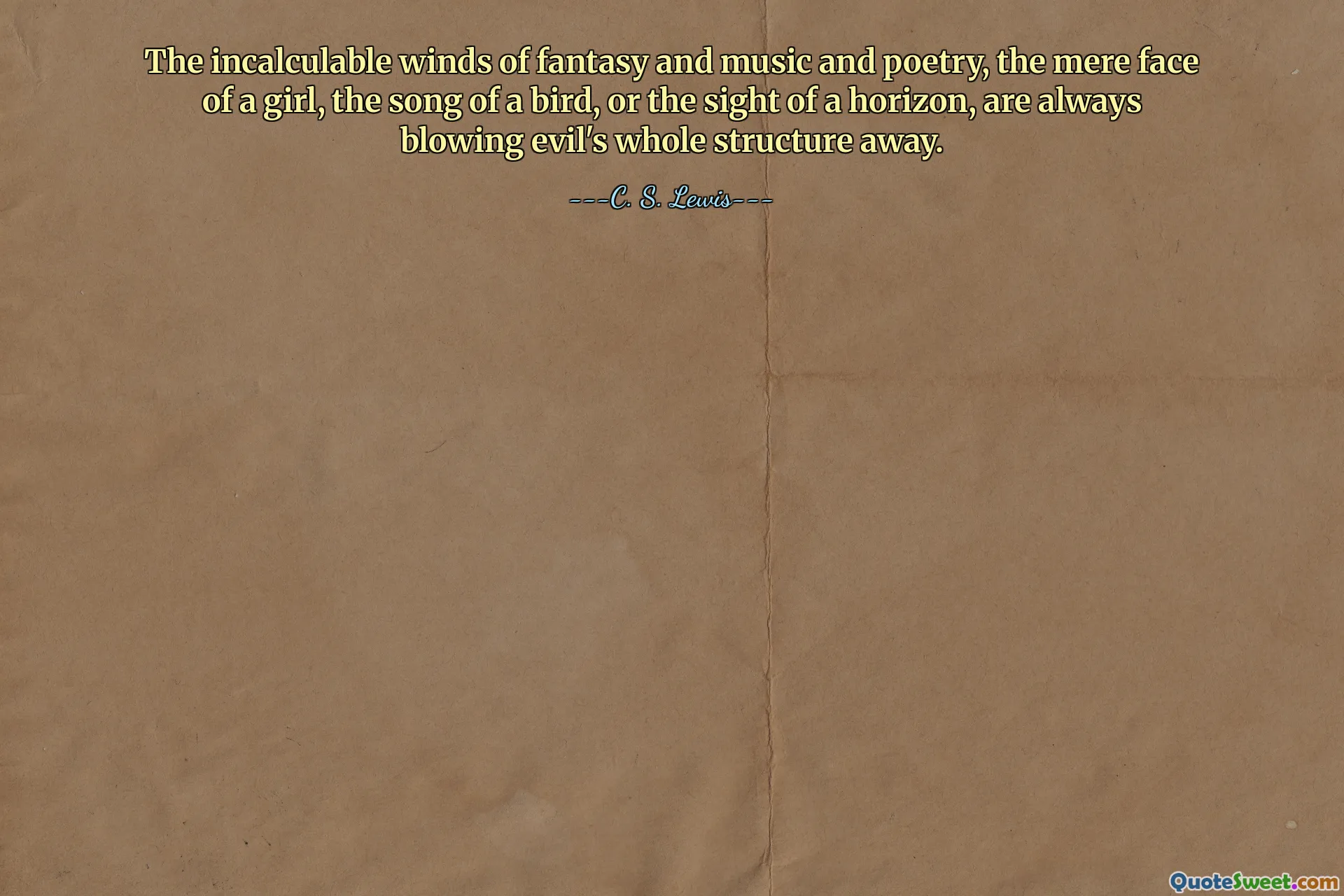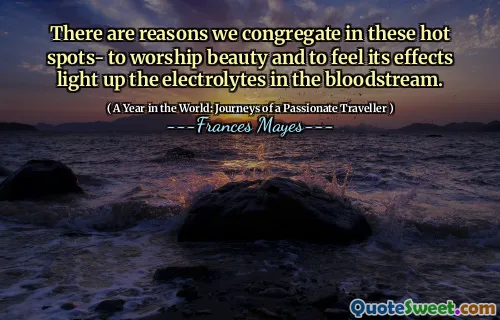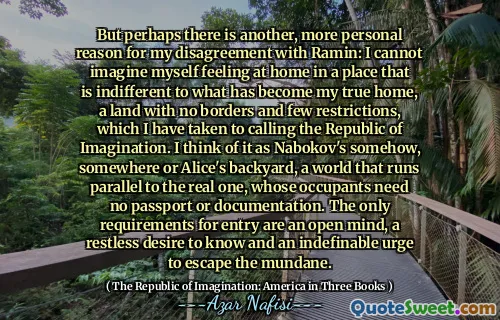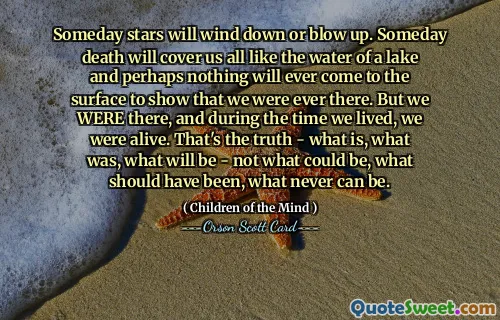
The incalculable winds of fantasy and music and poetry, the mere face of a girl, the song of a bird, or the sight of a horizon, are always blowing evil's whole structure away.
This quote from C. S. Lewis poignantly encapsulates the transformative and often underestimated power of beauty, art, and nature against the forces of evil and darkness. The imagery of "incalculable winds" suggests a force beyond quantification or control—one that moves fluidly and persistently through elements of creativity and simple, everyday wonders. It's a reminder that fantasy, music, poetry, and even the casual observation of beauty—like a face, a bird’s song, or a horizon—hold an intrinsic power capable of dismantling negativity and malevolence. These elements are not just distractions or escapes, but active agents of hope, renewal, and resistance. Lewis emphasizes how these transcendent experiences network together to challenge and weaken "evil's whole structure." The metaphor implies that evil, though built with effort and intent, is fragile when confronted with the purity and truth of beauty and imagination. In a contemporary context, this can inspire us to cherish creativity, art, and the natural world as vital components in nurturing goodness and combating despair. The quote also touches on the small but impactful acts of perception and appreciation, suggesting that even the simplest acts—like seeing, listening, or imagining—can wield great power. In essence, Lewis argues for the profound importance of culture, emotional experience, and human spirit as essential bulwarks against the corrosion of evil, encouraging us to hold on to and propagate these "winds" in our lives and societies.











